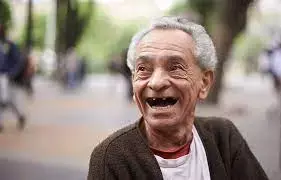- Home
- Medical news & Guidelines
- Anesthesiology
- Cardiology and CTVS
- Critical Care
- Dentistry
- Dermatology
- Diabetes and Endocrinology
- ENT
- Gastroenterology
- Medicine
- Nephrology
- Neurology
- Obstretics-Gynaecology
- Oncology
- Ophthalmology
- Orthopaedics
- Pediatrics-Neonatology
- Psychiatry
- Pulmonology
- Radiology
- Surgery
- Urology
- Laboratory Medicine
- Diet
- Nursing
- Paramedical
- Physiotherapy
- Health news
- Fact Check
- Bone Health Fact Check
- Brain Health Fact Check
- Cancer Related Fact Check
- Child Care Fact Check
- Dental and oral health fact check
- Diabetes and metabolic health fact check
- Diet and Nutrition Fact Check
- Eye and ENT Care Fact Check
- Fitness fact check
- Gut health fact check
- Heart health fact check
- Kidney health fact check
- Medical education fact check
- Men's health fact check
- Respiratory fact check
- Skin and hair care fact check
- Vaccine and Immunization fact check
- Women's health fact check
- AYUSH
- State News
- Andaman and Nicobar Islands
- Andhra Pradesh
- Arunachal Pradesh
- Assam
- Bihar
- Chandigarh
- Chattisgarh
- Dadra and Nagar Haveli
- Daman and Diu
- Delhi
- Goa
- Gujarat
- Haryana
- Himachal Pradesh
- Jammu & Kashmir
- Jharkhand
- Karnataka
- Kerala
- Ladakh
- Lakshadweep
- Madhya Pradesh
- Maharashtra
- Manipur
- Meghalaya
- Mizoram
- Nagaland
- Odisha
- Puducherry
- Punjab
- Rajasthan
- Sikkim
- Tamil Nadu
- Telangana
- Tripura
- Uttar Pradesh
- Uttrakhand
- West Bengal
- Medical Education
- Industry
Tooth replacement strategies in adult patients with reduced dentitions: experts' consensus

Tooth replacement for partially dentate patients is a common clinical consideration. This study provides evidence from a Delphi process to help clinicians and patients make informed choices about appropriate and inappropriate treatment options.
The study has been published in the Journal of dentistry.
Increased levels of natural tooth retention have led to the emergence of a partially dentate adult population in many countries worldwide, particularly in older age groups. Potential consequences of natural tooth loss include impaired mastication, altered food choices, psychosocial problems and reduced oral health-related quality of life
A study was conducted to develop consensus among experts in Restorative Dentistry based in the United Kingdom (UK) on the most appropriate tooth replacement strategies in adult patients with reduced dentitions using a modified Delphi analysis.
An expert panel of UK specialists (n=20) in Restorative Dentistry or Prosthodontics were asked to answer the following question: using available evidence and your clinical experience, how appropriate is each tooth replacement strategy for each clinical scenario of tooth loss in the mandible presented? Five specific clinical patterns of tooth loss were presented to panellists using clinical photographs and using a 9-point Likert scale, they were asked to rate the appropriateness of listed tooth replacement strategies during two Delphi rounds. The target level of consensus for each statement was 70%.
The results of the study are:
The consensus was reached on the appropriateness of thirty-seven tooth replacement strategies (37%) across ten clinical scenarios. Of these, thirteen were considered appropriate (13%) and twenty-four were considered inappropriate (24%).
Thus, the researchers concluded that the results from this Delphi process represent the consensus professional views of an expert panel of UK specialists in Restorative Dentistry and Prosthodontics. Tooth replacement for partially dentate patients is a common clinical consideration. This study provides evidence from a Delphi process to help clinicians and patients make informed choices about appropriate and inappropriate treatment options.
Reference:
Appropriateness of tooth replacement strategies for adult patients in the United Kingdom with reduced dentitions – a modified Delphi analysis by Conor McListe et al. published in the Journal of Dentistry.
https://doi.org/10.1016/j.jdent.2022.104125
Dr. Shravani Dali has completed her BDS from Pravara institute of medical sciences, loni. Following which she extensively worked in the healthcare sector for 2+ years. She has been actively involved in writing blogs in field of health and wellness. Currently she is pursuing her Masters of public health-health administration from Tata institute of social sciences. She can be contacted at editorial@medicaldialogues.in.
Dr Kamal Kant Kohli-MBBS, DTCD- a chest specialist with more than 30 years of practice and a flair for writing clinical articles, Dr Kamal Kant Kohli joined Medical Dialogues as a Chief Editor of Medical News. Besides writing articles, as an editor, he proofreads and verifies all the medical content published on Medical Dialogues including those coming from journals, studies,medical conferences,guidelines etc. Email: drkohli@medicaldialogues.in. Contact no. 011-43720751


